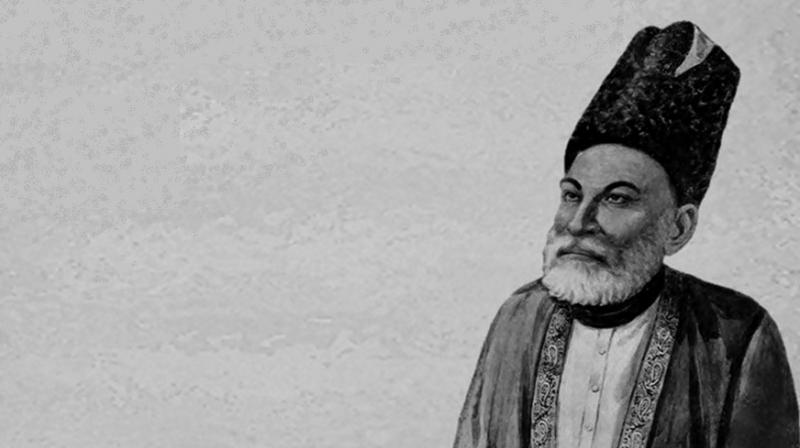Hyderabad: Mirza Ghalib verses find English route

Hyderabad: Poochhte hain woh ki ‘Ghalib’ kaun hai
Koi batlaao ki hum batlaayein kya…
(They ask who ‘Ghalib’ is
Someone tell them, what shall I say?)
The Urdu Academy and Urdu departments of universities in Hyderabad are doing nothing to remember Mirza Ghalib on his 230th birth anniversary on Thursday. But youngsters are translating his verses into Hindi and English and enjoying them. No programme was held in any University to mark the occasion but many people posted couplets and verses of Mirza Ghalib on social media as tribute to the poet on his birthday.
Mirza Ghalib, a courtier of the last Mughal Emperor, Bahadur Shah Zafar, was a poet who wrote in Persian and Urdu. His couplets and verses have been widely translated and quoted even by those who do not know Urdu or Persian. He is equally famous amongst all age groups. He composed his first poem at the age of 11. Most of his poems and verses are about failed love and its agony.
Urdu and Persian departments of various universities that have done little to commemorate one of India’s most famous poets, give the rather lame excuse that if his birth anniversary is celebrated then they will be asked to celebrate other poets of his calibre!
Prof. Naseemuddin Farees of Moulana Azad National University said that it was vacation time and so no symposium or workshop on Ghalib could be organised.
Acting president of the Iqbal Academy, Ziauddin Naiyar, says Ghalib took Urdu to the peak of its glory as a poetic language, and we should have a literary organisation that would research and highlight his work. Mirza Ghalib, he said was a greater genius than William Shakespeare. He admitted that in Hyderabad little had been done for Ghalib.
Many youngsters who admire the style of expression of the poet are translating his verses into English and Hindi so that a wider audience gets to delight in his verses.
Mr Syed Wajid Hussaini, who writes poetic verses, said every poet in the beginning practices with the verses of Ghalib.
Ms Ayesha Fatima, an Urdu scholar, said Ghalib’s poetry was of a high standard but a few of his verses were simple enough for even those who are not familiar with Urdu can understand the expressions.

